1. What do you know about the place in the photo?

2. What do you think of when you hear the phrase "cultural heritage"?
1. Activity 1: Read the following sentences. Put them in the right box.
Showing that you are listening
Exactly! You’re right! I see. I know what you mean.No way! You’re kidding! Really? I can’t believe it!
Great!/Super! That’s interesting. Wow! Tell me about it!
| expressions of agreement or understanding | |
| expressions of disbelief | |
| expressions that show feelings, such as joy, excitement, or sadness | |
| encouragement to say more |
Tips:
•Use the information in Justin and Wu Yue’s conversation.
•Use the expressions we mentioned just now to show that you are listening.
Sample:
____________________________________________________________________________________________________________________________________________________________________________________________________________________________________________________________________________________________________________________________________________________________________________________________________________________________________________________________________
1. What do you usually do online?
2. Can you name some apps of social media?
3. Look at the online activities in the box and match them with the pictures. Then tick the pictures of the activities that you like to do when you are online.

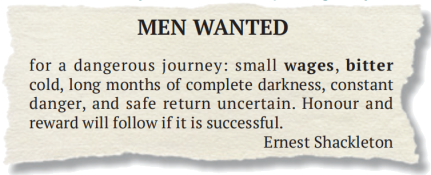
2. Would you like to join an expedition like this? Why or why not?
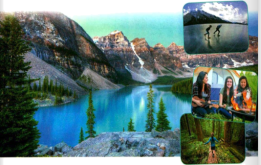
Expressing feelings and emotions
□It was fantastic! □How wonderful! □How exciting!
□That’s amazing. □It was great fun! □It’s very exciting.
□It was great to... □I’m really happy that... □I’m pleased to...
Discuss these questions in groups and then fill in the table.
What festivals do you celebrate with your family each year?
Why do you think people celebrate different festivals?
| Names of the festivals | Reasons for celebrating the festivals |
A.people to give music lessons
B.choir members
C.people to run food stands (打理食品摊位的人员)
D.people to sell festival tickets
E.people to sell music CDs
F.people to set up equipment (布置设备的人员)
G.musical performers
A. Tadpoles Searching for Mother
B. Feeling from Mountain and Water
C. The Cowboy’s Flute
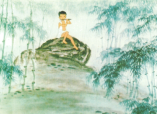
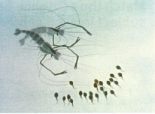
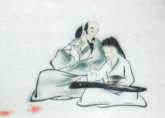
1.
2.
3.
VOLUNTEERING IN THE BUSH
8 March
I just got a parcel from home! It took about two weeks to arrive, and it was a bit damaged, but it was so nice to get some sweets and jam from home; I’ve been dying to have some of my favourite sweets, and it’s always nice to get mail!
So I’ve been here in the jungle for about a month now. My secondary school is a bush school. The classrooms are made of bamboo, with clay floors and roofs of grass. It takes me only a few minutes to walk to school down a dusty track covered in weeds. When I reach the school grounds, I’m greeted by a chorus of “good morning” from the boys. Unlike students in our country, these boys do not wear cotton uniforms, and many of them also have to walk a long way, sometimes for up to two hours, just to get to school.
There’s no electricity, running water or even textbooks, not to mention laptops, tablets, or other modern devices! All the students have are pencils, rubbers, and paper. I’m still trying to adapt to these conditions. I’ve had to become much more imaginative in my teaching. Science is my most challenging subject as my students have no concept of doing experiments. There is no equipment, and since there isn’t even a washroom, if I need water I have to carry it from my house in a basin! It’s important not to be too rigid about rules here, too. The other day I was showing the boys a chemistry experiment when, before I knew it, the mixture was bubbling out of the test tube spilling everywhere! The class became a circus as the boys, who had never come across anything like this before, started jumping out of the windows. Sometimes I wonder how relevant chemistry is to these students — few will ever become chemists — and most will be going back to their villages after Year 8 anyway. To be honest, I doubt whether I’m making any difference to these boys’ lives at all.
chemistry is to these students — few will ever become chemists — and most will be going back to their villages after Year 8 anyway. To be honest, I doubt whether I’m making any difference to these boys’ lives at all.
17 April
Last weekend I made my first visit to a remote village, home to one of our students, Tombe. Another teacher and I walked for two and a half hours to get there — first, up a mountain from where we had fantastic views, and then down a shaded path to the valley below. When we arrived at the village, Tombe’s mother, Kiak, saw us coming and started crying “ieee ieee”. We shook hands with all the villagers. Everyone seemed to be related to Tombe.
Tombe’s father, Mukap, a man with a strong jaw and a wrinkled forehead, led us to his house, a low, round bamboo hut with no windows, with a door just big enough to get through, and with grass sticking out of the roof — this shows it is a man’s house. Such housing is dark inside so it took time for our eyes to adjust. Fresh grass had been laid on the floor and there was a platform for Jenny and me to sleep on. There was a fireplace in the centre of the hut. The only possessions I could see were one broom, a few saucers, a kettle, cups, pans, and a couple of jars.
Mukap built a fire outside and laid stones on it to heat. He then placed the hot stones in an empty oil drum with kau kau (sweet potato), ripe corn, and greens. He then covered the vegetables with banana leaves and left them to steam. It smelled delicious. We ate inside the hut sitting round the fire. I loved listening to the family talking softly to each other in their language, even though I could not participate much in the conversation. Luckily, Tombe interpreted for us.
Later, I noticed a can standing upside down on the grill over the fire. After a while, Tombe threw it out of the doorway. Tombe told me that the can was heated to dry out the leftover food. His family believes that leftovers attract bad spirits in the night, so any leftover food is dried up in a can and the can is then thrown out of the hut.
We left the village the next morning after many goodbyes and firm handshakes. My muscles were aching and my knees shaking as we dragged ourselves down the mountain towards home. That evening I fell happily into bed. It was such a privilege to have spent a day with Tombe’s family.
1. What’s the main idea of the text?| A.Jo went to a bush school to visit friends. |
| B.Jo’s experience as a volunteer in the bush. |
| C.Introduction of a bush school. |
| D.Introduction of Tombe’s home in the village. |
| A.Jo and another teacher visited Tombe’s home in the village. B.Getting mail from home made Jo feel nice. C.The school where Jo worked and Jo’s work at school. |
Part 2(Paras.2-3)
Part 3(Paras.4-8)
3. What’s the purpose of the author in writing the blog?
| A.To tell us her teaching life in the bush school as a volunteer. |
| B.To tell us her learning life in the bush school as a volunteer. |
| C.To tell us that she couldn’t get any money by teaching the poor students. |
| D.To tell us how happy she was in the small village. |
| A.Because they were frightened by the bubbling mixture. |
| B.Because they couldn’t stand the terrible smell of the mixture. |
| C.Because they didn’t like doing chemistry experiments. |
| D.Because they knew chemistry was not relevant to them. |
| A.Because this was Jo’s first visit to a remote village. |
| B.Because she was expressing her friendliness and warmth. |
| C.Because Jo walked for two and a half hours to get there. |
| D.Because she was afraid of strangers. |
| A.Happy. | B.Sad. |
| C.Worried. | D.Upset. |
Jo worked at a bush school whose classrooms
(1) There is no equipment, and since there isn’t even a washroom, if I need water I have to carry it from my house in a basin!
(2) The class became a circus as the boys, who had never come across anything like this before, started jumping out of the windows.
(3) His family believes that leftovers attract bad spirits in the night, so any leftover food is dried up in a can and the can is then thrown out of the hut.



